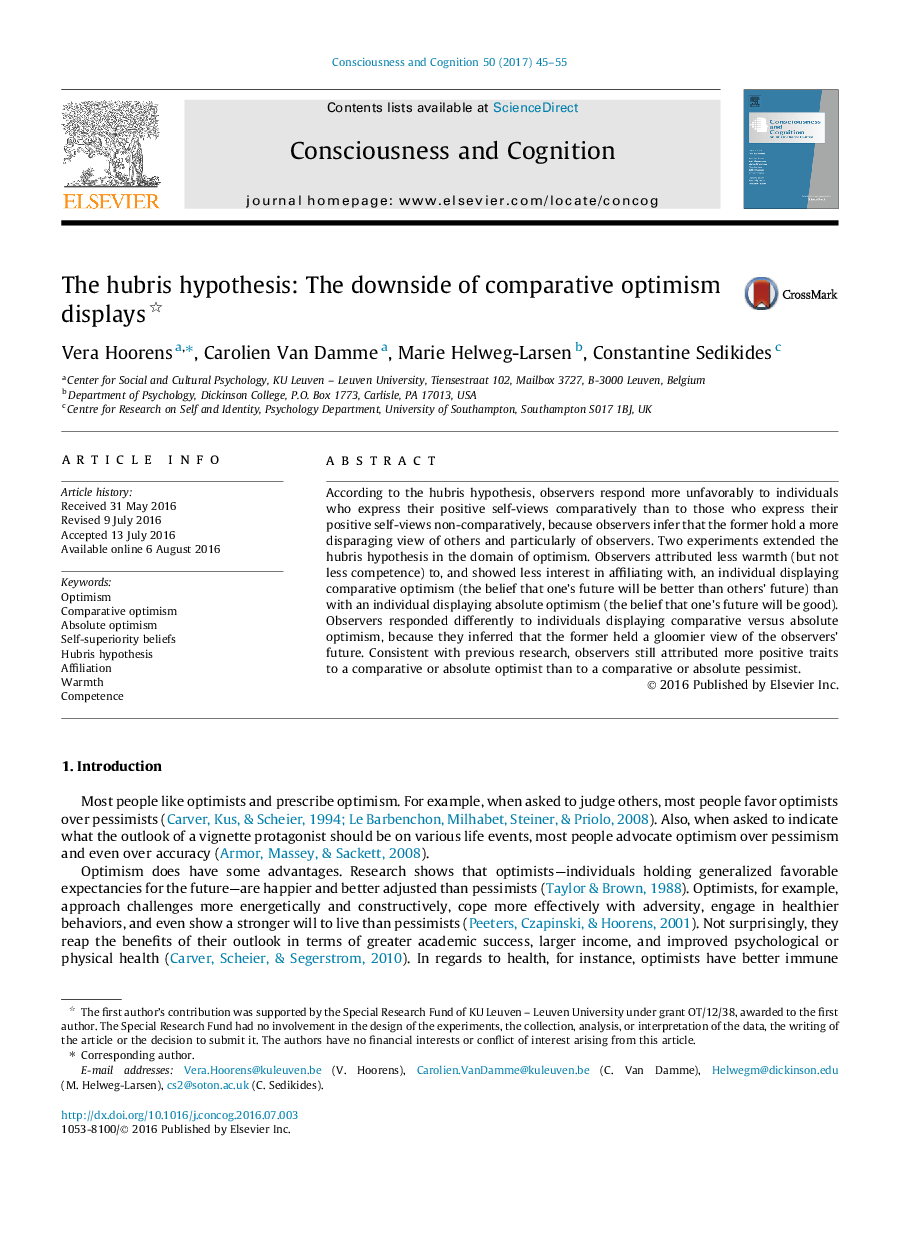| Article ID | Journal | Published Year | Pages | File Type |
|---|---|---|---|---|
| 5041711 | Consciousness and Cognition | 2017 | 11 Pages |
â¢Optimists are better liked than pessimists, and their company is sought more.â¢Absolute but not comparative optimists are better liked than 'neutral' individuals.â¢Observers dislike comparative optimists relative to absolute optimists.â¢Observers assume that a comparative optimist views their future pessimistically.
According to the hubris hypothesis, observers respond more unfavorably to individuals who express their positive self-views comparatively than to those who express their positive self-views non-comparatively, because observers infer that the former hold a more disparaging view of others and particularly of observers. Two experiments extended the hubris hypothesis in the domain of optimism. Observers attributed less warmth (but not less competence) to, and showed less interest in affiliating with, an individual displaying comparative optimism (the belief that one's future will be better than others' future) than with an individual displaying absolute optimism (the belief that one's future will be good). Observers responded differently to individuals displaying comparative versus absolute optimism, because they inferred that the former held a gloomier view of the observers' future. Consistent with previous research, observers still attributed more positive traits to a comparative or absolute optimist than to a comparative or absolute pessimist.
